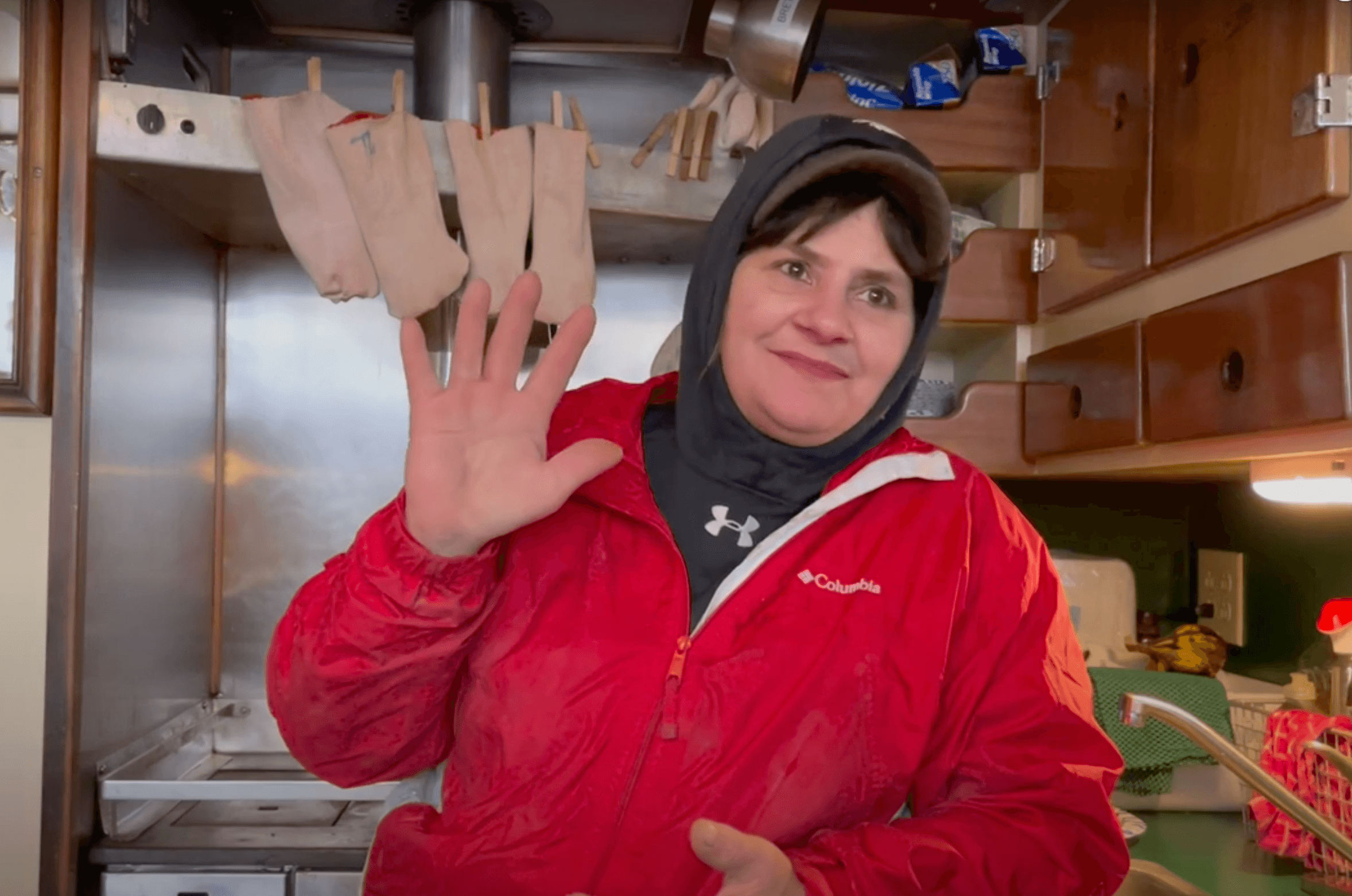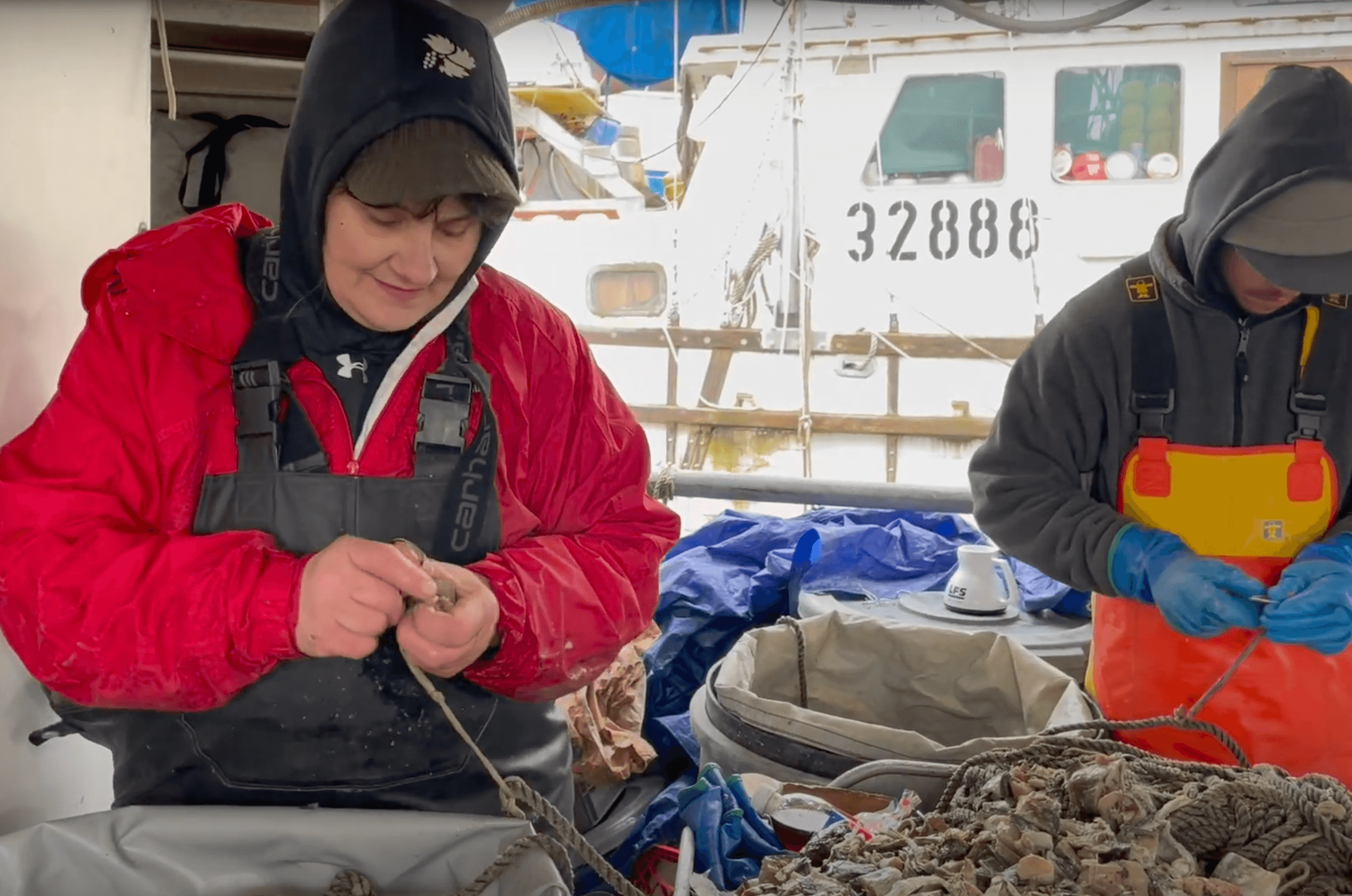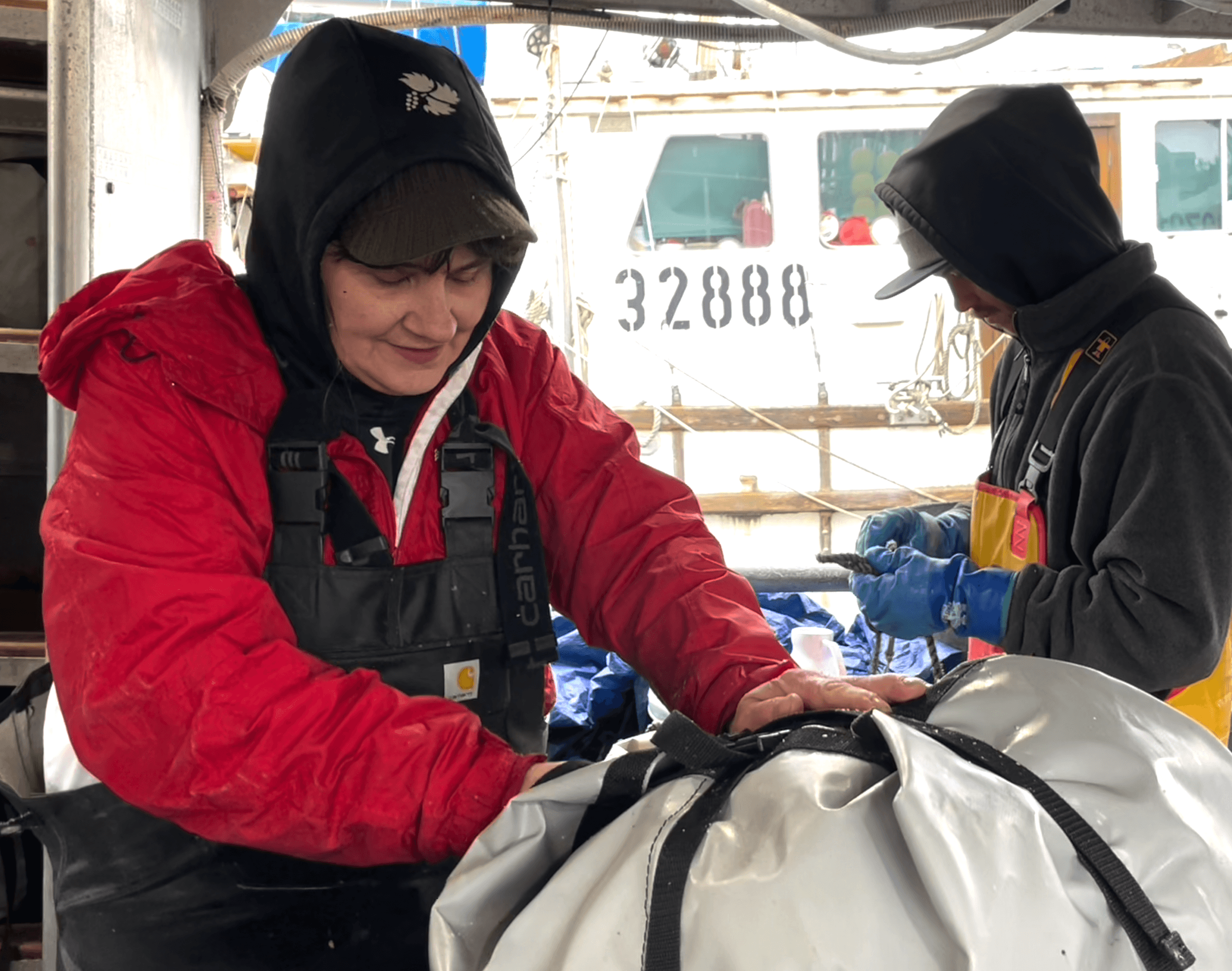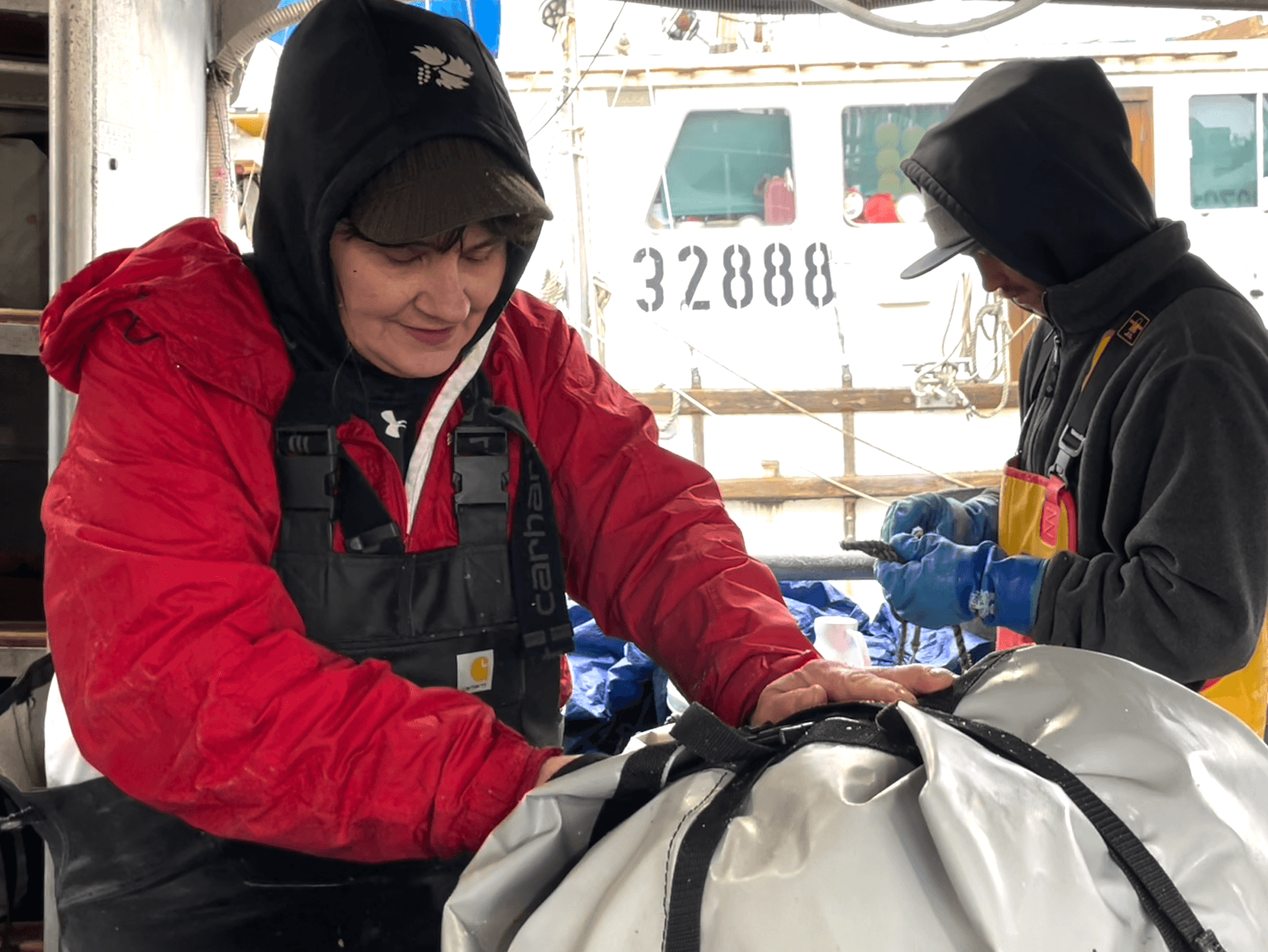“You’ve got to come see this,”
says my fisherman friend on the phone. He tells me there’s a fisherman baiting longline gear on his boat who works without gloves. I step on board and introduce myself. Deanne Kubik looks up and smiles. She says she would shake my hand only she’s holding a frozen chunk of salted bait.
We start talking about how she got into fishing as she continues working — she quickly inserts a large barbed hook into the bait, gives it a twist, nestles it into the piled coil of line, and moves on to untangling the next gangion.
The crew is prepping for an upcoming black cod (sablefish) longline trip. One of the most time-intensive aspects of longlining is baiting gear which can require multiple days of standing on deck putting fish on each and every hook along nearly a mile of line. That’s why Deanne is here to help out — she’s known to be an especially quick baiter.
Deanne’s mother warned her when she was a child not to marry a fisherman. Little did she know that Deanne would grow up to become one. Fishing is a way of life — one that she wanted her daughter to steer clear of. “When I turned into a fisherman she had a hard time with that,” says Deanne.

Her first taste of fishing was as a kid on the deck of her grandfather’s wooden troller. A lifelong fisherman from Port Alexander (a fishing port of around 80 residents located south of Sitka), he had been fishing his own boat since he was a kid himself. Deanne still laughs when she thinks about the first king salmon that she gaffed. “He was a fat torpedo of a fish,” she smiles thinking of how that only made her granddad more upset when she gaffed it in the stomach on accident.
Nevertheless, she learned quickly and found that she enjoyed fishing. She liked the work, especially the excitement that comes with catching fish and hearing the sound of fish on deck, “There’s nothing better than listening to a clatter. ‘Oh, we got one!’ Going out there and seeing those kings come up,” she smiles.
“Everybody pitches in and everybody works together. We all live for fish.”
Deanne was hooked, but starting out on boats wasn’t easy. She would hang back when approaching skippers looking for work with her husband, Donny (a fisherman despite her mother’s best intentions). She says in those days men would often complain, “You brought a girl?” when she would join the crew. Now she laughs as she remembers how those “male chauvinists” gave her fuel to work faster. She was tough and earned the nickname “Animal” by baiting hooks without gloves. She remembers a fisherman that once told her to stay home and bake cookies. Deanne looks at me and raises her eyebrows: “I told him where he could put those cookies.”
When I ask her what makes her so fast she says it just comes from her stubborn determination to prove wrong all the men that said she couldn’t fish. Plus some healthy competitiveness, “I just try to beat Donny,” she tells me.
Today, she more than beats them — she can bait four coils in the time it takes most guys to bait one and she says she’s working on getting her grandson up to speed.

Despite the challenges of being accepted in a male-dominated industry, Deanne says that the fishing community is the warmest and most supportive community of people you could hope to be a part of. “Everybody pitches in and everybody works together. We all live for fish.”
These days Deanne is working to teach her grandkids about fishing. She loves seeing their faces light up when they reel in a fish. She says that they can be out fishing for nine months and the first thing that her husband wants to do when he gets home is to take their grandkids fishing. It’s a way of life — one that she’s excited to pass on to them. “We’re all proud and work hard and enjoy it. We love it! We come to work and are laughing all day, smiling, and working so hard that we go home and just pass out, but I wouldn’t want it any other way. None of us would.”
"I wouldn’t want it any other way. None of us would.”



